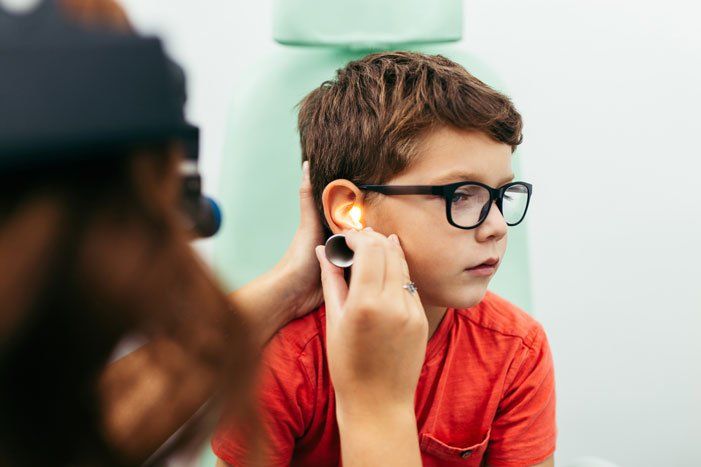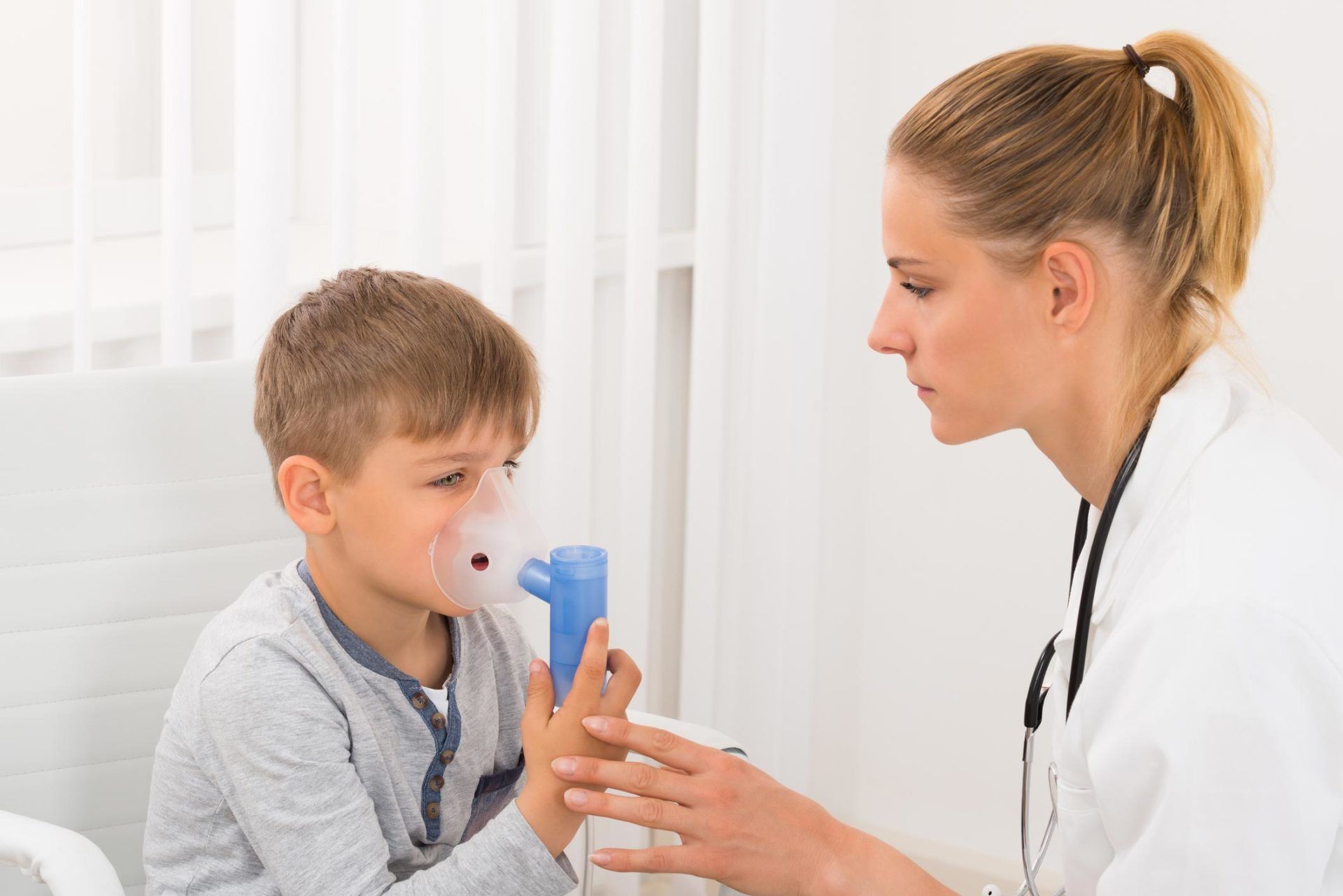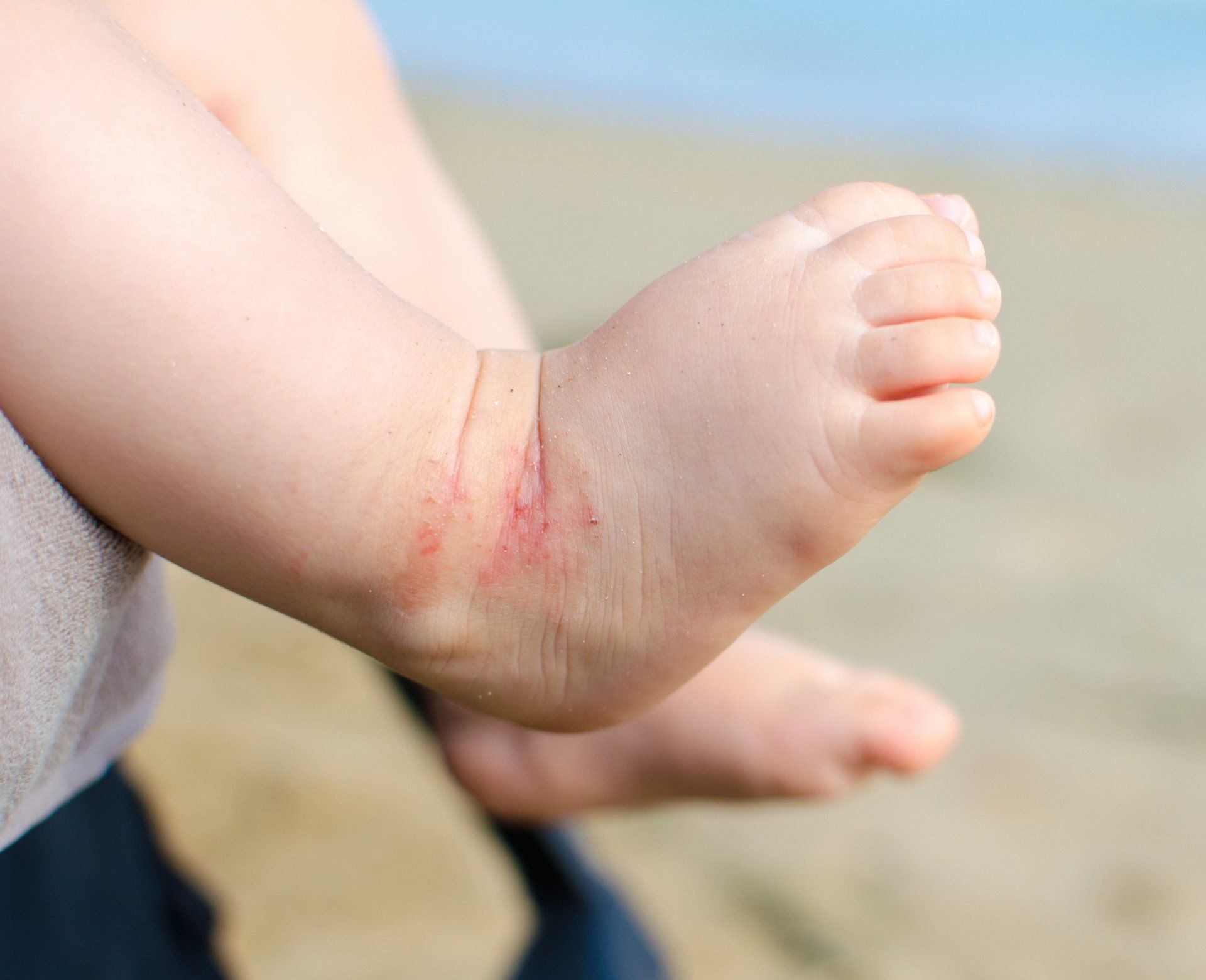Signs and Symptoms of Pediatric Thrombocytopenia
If your doctor tells you that you child's blood platelet count is low, it means that a clotting disorder known as thrombocytopenia is present. This hematological disorder may be asymptomatic or may cause serious symptoms. It can be caused by a bacterial, viral, or fungal infection; medications; or even a bone marrow disorder. One of the infections that can lead to thrombocytopenia is mononucleosis (mono).
Take a look at some of the signs and symptoms of thrombocytopenia in children.
Petechiae
Petechiae refers to tiny pinpoint dots under the skin that are usually purple, red, or brown in color. They are the result of subcutaneous bleeding, and while they can be associated with mild trauma, abrasions, and insect bites, they can be a sign of a low platelet count.
They often develop in clusters on the skin and can also be found on the mucus membranes of the inner eyelids or lining of the cheeks. Petechiae spots are not raised and they do not itch.
Note that the existence of petechiae is not a diagnosis, only a sign of another condition. Your child will need to see the pediatrician for a complete blood count and physical examination.
Prolonged Bleeding
Another symptom of thrombocytopenia that your child may develop is prolonged or excessive bleeding from a minor cut or scrape. This is because when the platelet count is low, blood clotting takes longer. To stop bleeding in your child, apply pressure over the area with a clean cloth for a few minutes or until the bleeding stops. If the bleeding does not stop, take your child to the pediatrician.
Your child may also experience blood in the stool or urine. When this happens, seek prompt medical attention because if the child loses too much blood from the bowel or urinary tract, severe anemia can develop. A low platelet count may also result in nosebleeds, and if your child has started menstruating, heavy menstrual bleeding may occur.
Severe Fatigue
If your child has no interest in playing because he or she is unusually tired, a low platelet count may be to blame. While unrelenting fatigue can be caused by infections and other conditions, your physician may suspect thrombocytopenia, especially if petechiae and abnormal bleeding are present.
In addition to a complete blood count, your child's pediatrician will also palpate the spleen and liver to see if it they are enlarged. If blood tests reveal the presence of a low platelet count, the doctor will try to establish a cause such as an infection or a medication that your child takes. In mild cases of thrombocytopenia, no treatment is needed.
If the pediatrician determines that treatment is needed for your child's low platelet count, medications such as those used to raise the platelet count will be prescribed. Corticosteroids are often the medication of choice; however, if those are ineffective, the doctor may recommend immunosuppresants.
If the doctor prescribes immunosuppresants to treat a low platelet count, your child may be more susceptible to infections. Once the medication has been discontinued, though, immune function will start to improve.
In severe cases of thrombocytopenia, the doctor may recommend removal of the spleen, or splenectomy, as well as a procedure known as a plasma exchange. If the pediatrician recommends a plasma exchange, your child's blood plasma will be removed and replaced with fresh plasma. Your child will need to be hospitalized for this procedure, and may feel weak, tired, or nauseous afterwards.
To learn more about thrombocytopenia or other pediatric blood disorders, or if your child needs general pediatric services, contact Y.H. Parikh & Associatestoday to schedule your appointment.








